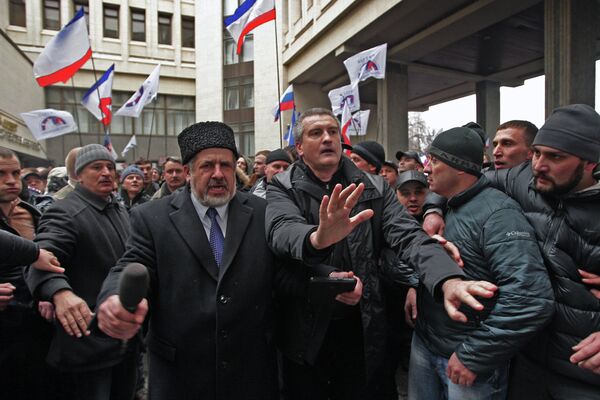MOSCOW, March 6 (RIA Novosti) – The semi-formal government of the Crimean Tatars said Thursday that the ethnic minority will boycott the secession referendum set by the Ukrainian region’s pro-Russian authorities.
Crimea’s parliament set a popular vote for March 16 to decide whether the republic should join Russia or remain a part of Ukraine, possibly with increased autonomy.
But the Mejlis of the Crimean Tatar People, who constitute about 15 percent of the region’s population of 2 million, calls to boycott the vote, the organization’s head Refat Chubarov said.
“[Vote] results that will be made public will obviously be determined elsewhere regardless of the turnout on voting day,” Chubarov said, the Politnavigator.net news site reported.
The majlis requests an armed UN peacekeeping force be deployed in the Crimean peninsula, Chubarov said.
Crimean authorities refused last week to recognize the new central government in Kiev installed by the largely nationalist opposition that ousted President Viktor Yanukovych in late February.
Ukraine lost control of the peninsula after thousands of troops without insignia swarmed the area, taking control of administration buildings and taking over military bases.
Though the troops speak Russian and have Russian military equipment and license plates, the Kremlin denied they were Russian, saying they were local militias.
Crimean Tatars were deported to Central Asia by Josef Stalin in 1944, but returned to the region after the Soviet Union’s demise, settling alongside the predominantly Russian-speaking population, with whom they occasionally clashed over land disputes.




